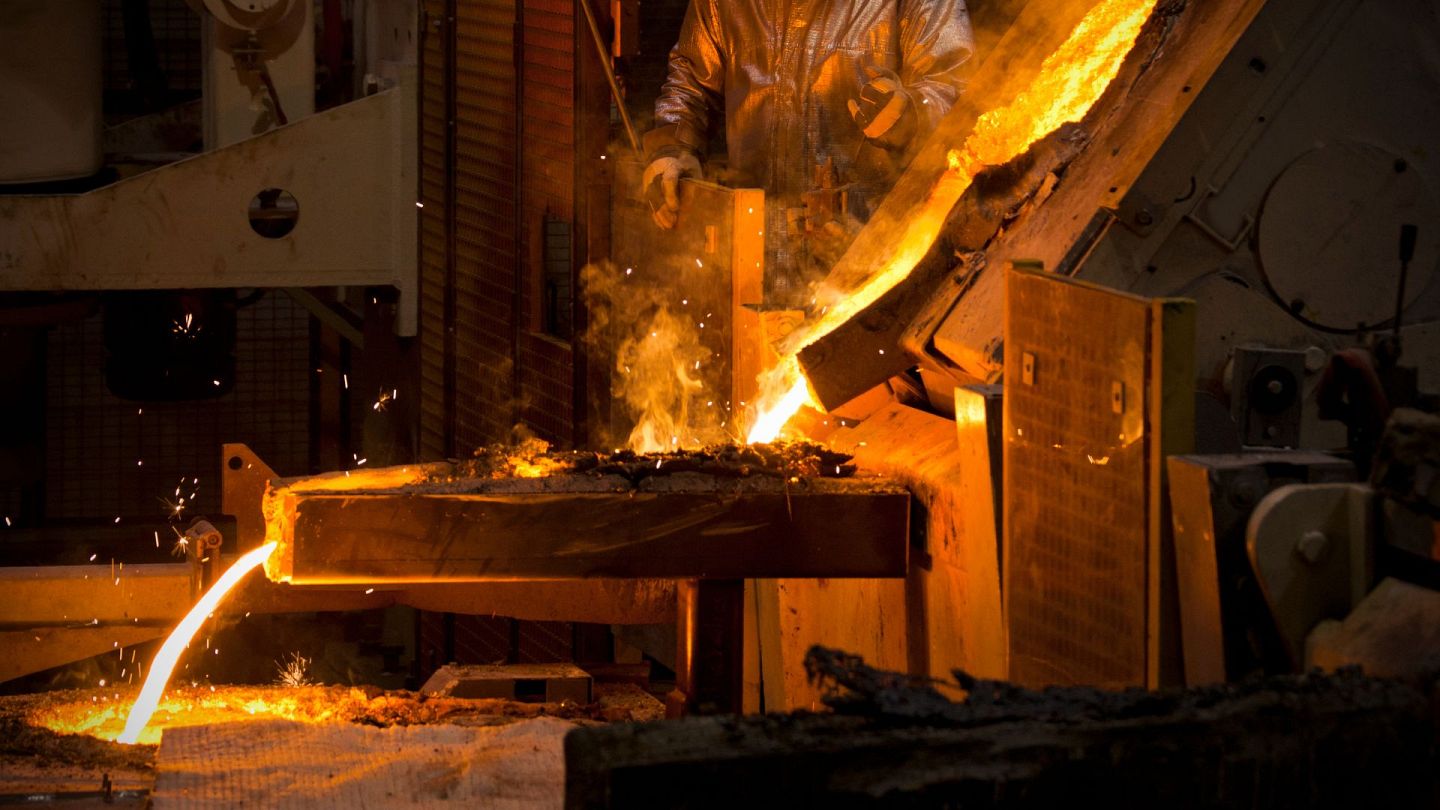Why is the British government planning to nationalize the steel factory?
The British government has faced increasing pressure to protect its own steel production industry in order to reduce dependency on metal imports from other countries.
Due to the pressure from the global trade war on the country's ability to procure the steel needed for its domestic industry, the British government has not ruled out the option of nationalizing the last factory in the country that produces steel from raw materials. According to local politicians and unions, the Scunthorpe steelworks operated by British Steel may soon run out of iron pellets used to produce steel in two large blast furnaces if the government does not intervene. This is because the plant's owner, the Chinese Jingye Group, canceled orders for these essential raw materials during negotiations to increase state support. This news came two weeks after British Steel announced that it was considering shutting down its furnaces due to "challenging market conditions," tariffs, and rising environmental costs, claiming they were no longer financially sustainable. Following Jingye's rejection of a £500 million offer to help modernize the facility, the government is continuing negotiations with the company. When asked on Tuesday what the government could do to keep the plant open, Prime Minister Keir Starmer confirmed his commitment to steel production in the UK. In a statement to a parliamentary committee, he said, "All options are on the table regarding Scunthorpe." British Steel has been producing steel in Scunthorpe for over 130 years. The facility currently employs around 2,700 people. Jingye acquired British Steel in 2020 and reported that it has invested over £1.2 billion to keep the plant operational amid "ongoing production instability."
Steel production in the UK has decreased. Nationwide, steel production has fallen by 80% since the late 1960s due to high production costs and the rapid increase in production in China, which has driven global prices down. Once the fifth-largest steel producer in the world in 1970, the UK produced only 5.6 million tons of steel in 2023, accounting for just 0.3% of global production. In contrast, China produced 1.02 billion tons, or 54% of world output. The remaining steel producers in the UK are under pressure to reduce carbon emissions due to the threat of global warming. Most have transitioned to electric arc furnaces that produce steel from recycled materials. This has left Scunthorpe as the only plant with blast furnaces capable of converting iron ore into raw steel. Union officials state that British Steel needs to order more iron pellets in the coming days to ensure deliveries can be made before the facility runs out of raw materials by the end of May. Steelworker and Community union representative Thomas Smith told Sky News this week, "We are facing the risk of losing these furnaces." He added, "If we miss the deadlines, we will reach a point where we will have to decide whether to shut both down." During a debate in the House of Commons on Monday, MPs emphasized that the UK needs its own steel production industry to maintain economic independence amid the trade war ignited by new tariffs from US President Donald Trump.


